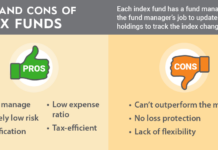Looking for a home to buy is much easier than the buying process itself. The process becomes even more overwhelming when you are haggling for the best price. Unless you spend your day’s haggling for prices and best deals everywhere, negotiating for the best price for your next home can be quite overwhelming.
If you know how to negotiate the price of a home, you will have a better chance at scoring the best deals compared to anyone who walks into the recess blindly. Here’s how to go about it and score the best deal for your new home;
Know When to Start
You first need to know when is the best time to start negotiating. While you might be advised to begin negotiating when you make an offer, and the seller accepts it, it’s best to know your negotiating power beforehand.
That means knowing what you can negotiate on, like repairs or items that come with the house. When you go to the property for the first time, keep such items in mind, or note them down, so you can use them during negotiations.
It’s also worth noting when your negotiation window ends. It usually ends after you close the property, that’s a couple of days after signing the contract. The period varies on your country and rules in that area. But you mostly have like a month or 45 days for the property to close. Within this period, you can still negotiate with the seller.
Understand the Market and the Seller
Understanding the market and the seller, rather than using your emotional perspective, will help you in the negotiating process. When it comes to the market, you need to know the average house prices in that area. Do as much research as you can, including prices of the latest properties sold in the area.
Many buyers who manage to negotiate to the best price will have research dating back to a couple of months before the purchase. While it gives you a sense of bargaining power, it also allows you enough time to compare properties and settle for the best property that suits your needs.
Also, your negotiation power might be capped by the real estate season. That’s the demand vs supply situation of the market. When the demand is high compared to the supply, i.e., a seller’s market, the seller is rigid with the prices. They know that many people are looking to buy houses, and some will settle for a slightly lower price and fewer contingencies than you.
If it’s a buyer’s market, where supply is more than the demand, the seller will mostly be willing to haggle on the sale price as well as the contingencies.
On the seller, you need to understand why they are selling the house and whether they are financially strained. If they are in a financial fix and need some cash real fast, there is a high negotiating room for you. However, if the seller already has another property where they live or is not in need to fast cash, there might be little room for negotiating. Whichever the reason for selling it, it doesn’t mean you have to disadvantage the seller.
Carry Out an Inspection
A home inspection might be the key to getting a lower price on your dream home that you had hoped. Inspectors evaluate the property and look for any issues like ventilation, foundation, roofing, inbuilt appliances, garage, electric wiring, among others.
The inspector will provide you with a copy of the inspection report, which you can use as the basis for your concessions if there are any issues with the property. You can request the seller to fix the problem, have these as part of your contingency. Alternatively, you can also request for a lower buying price or a credit.
If the inspection reveals the property is not up to your standards, you’re allowed to cancel the deal based on that.
Have an Agent
Remember the seller’s agent is not on your side. They are working for the seller and looking to score the best deal for a fat commission. Anything you say, include personal disclosures, can be used against you in the negotiating process.
That’s why it’s advisable to have your own agent, whom you can do all communication to the seller through. A real estate agent or realtor agent is best at explaining every real estate terms you’re not familiar with and advise you on what to watch out for.
That said, don’t go pouring all your heart your agent, too, or show how desperate you are to buy the property. You need to remain official and objective in the whole process.
Negotiate on other costs
The asking price of the house should not be your basis for negotiations. Other additional costs like closing costs, fees, as well as contingencies always add up the cost of the property in the long run. If you concentrate on the asking price alone, you will find the property more expensive that you expected when you finally tally the amount you paid and the additional costs you had not factored.
Have Fewer Contingencies
Contingencies, in real estate, refer to conditions in the Agreement of Sale that must happen for the transaction to proceed. The fewer the contingencies you have, the more likely you are to close the deal. Sellers prefer contracts with lower contingencies since they live lower chances for the deal to go south.
That said, you should not overlook important contingencies, like inspection contingency in a bid to close the deal fast. Talk with your real estate agent and go through all the important contingencies that will cushion you in the process. If you can find other ways to lessen the contingencies, like having fewer inspection days, you will be making the process simpler for the seller and more negotiating power for you.
Have More Options
Nothing will kill your negotiating power than having a few options. It makes you desperate to make a deal, which can dangerously lead you to take a bogus one. With many options, you can always walk away from a deal that does not agree with your budget. Or one where the seller is not willing to negotiate.
If you know how to negotiate the price of a home when buying, you will bag the best deal for your new home. The key is knowing what you want and have a little knowledge of the market and the seller. It’s also good to have an agent that will represent you to the seller and help you handle and navigate the real estate negotiating routes.












